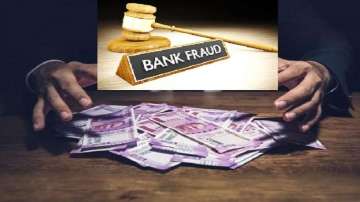Attention! Fraud transaction in your bank account? RBI says do this immediately to limit loss
Amid ongoing phishing or cyberattack, Reserve Bank of India (RBI) on Wednesday warned citizens of fraudulent transactions. Due to coronavirus lockdown, online banking has seen a massive boom as it becomes the major source of carrying financial transaction.

With digital transactions rising manifold, the number of phishing or cyberattacks where fraudsters manage to target your bank account or extract money from your Debit Cards/Credit Cards has also shot up. The Reserve Bank of India (RBI) on Wednesday warned bank account holders of fraudulent transactions. The Reserve Bank of India has already asked banks to ensure proper safety measures with respect to customers hard-earned money. RBI has also established a helpline number to report fraudulent activities or illegal transaction or withdrawals.
Due to coronavirus lockdown, online banking has seen a massive boom as it becomes the major source of carrying financial transaction. In a message to bank account holders on Wednesday, the RBI has once again reminded people what to do if there was any suspicious activity in their bank account.
RBI Helpline Number to report fraudulent activity in your bank account: 14440
In a text message, RBI said, "Fraudulent transaction in your bank account? Limit your loss. Notify your bank immediately. For more details, give a missed call on 14440." Timely information of fraudulent transactions ensures the customer to limit the damage.
"In recent days there are reports of users falling prey to fraudsters who are luring them on fictitious pretexts, such as alleged completion of KYC requirements, impersonating identities and websites of banks and payment system operators, etc," RBI said.
RBI has also said in order to promote safe digital transactions users should take care by:
(1) not sharing with anyone their ATM / Card (Debit / Credit / Prepaid) details;
(2) not sharing their Password, PIN, OTP, CVV, UPI-PIN, etc.;
(3) avoid undertaking banking or other financial transactions through public, open or free wifi-networks; and
(4) not storing important banking data on the mobile, e-mail, electronic wallet or purse. Consumers may remember that banks and other payment systems operators never ask for details such as password, PIN, OTP, CVV number.
On Tuesday, RBI also warned citizens to be wary and not fall prey to fraudulent tactics used by seamsters.
RBI warns against increasing payments fraud: Full Statement
In an advisory, the central bank said it has been taking measures to improve awareness through its e-BAAT programmes and organising campaigns on the safe use of digital payment modes, to avoid sharing critical personal information like PIN, OTP, passwords, etc.
However, despite these initiatives, RBI on Monday said, "the incidence of frauds continue to bedevil digital users, often using the same modus operandi users were cautioned about, such as luring them to disclose vital payment information, swapping sim cards, opening links received in messages and emails, etc."
"There are also cases of users being tricked into downloading spurious apps that access critical information stored on devices. It is, therefore, essential that all payment systems operators and participants – banks and non-banks – continue and reinforce efforts to spread awareness about digital safety," RBI added.
RBI has also asked all authorised payment systems operators to undertake targeted multi-lingual campaigns in the form of SMSs and advertisements as part of its awareness drive.
Meanwhile, State Bank of India has also issued a warning for its users to beware of an imminent phishing attack (cyber attack) on Monday.
Citing the Indian Computer Emergency Response Team (CERT-In) advisory, SBI has alerted 2 million users could be targeted by fake emails, social media posts or texts messages, which promises free Covid-19 testing across India.
"Attention! It has come to our notice that a cyber attack is going to take place in major cities of India. Kindly refrain yourself from clicking on emails coming from ncov2019@gov.in with a subject line Free COVID-19 Testing," SBI tweeted on Sunday.
The CERT-In warning advisory added that there would be a phishing email subject line like free Covid-19 testing for all residents of Delhi, Mumbai, Hyderabad, Chennai and Ahmedabad.
The government also issued preventive measures where it stated that 'not to open' or 'click' on attachment in an un-solicited email, SMS or messages through social media. It further directed to exercise caution in opening attachments, even if the sender appears to be known.